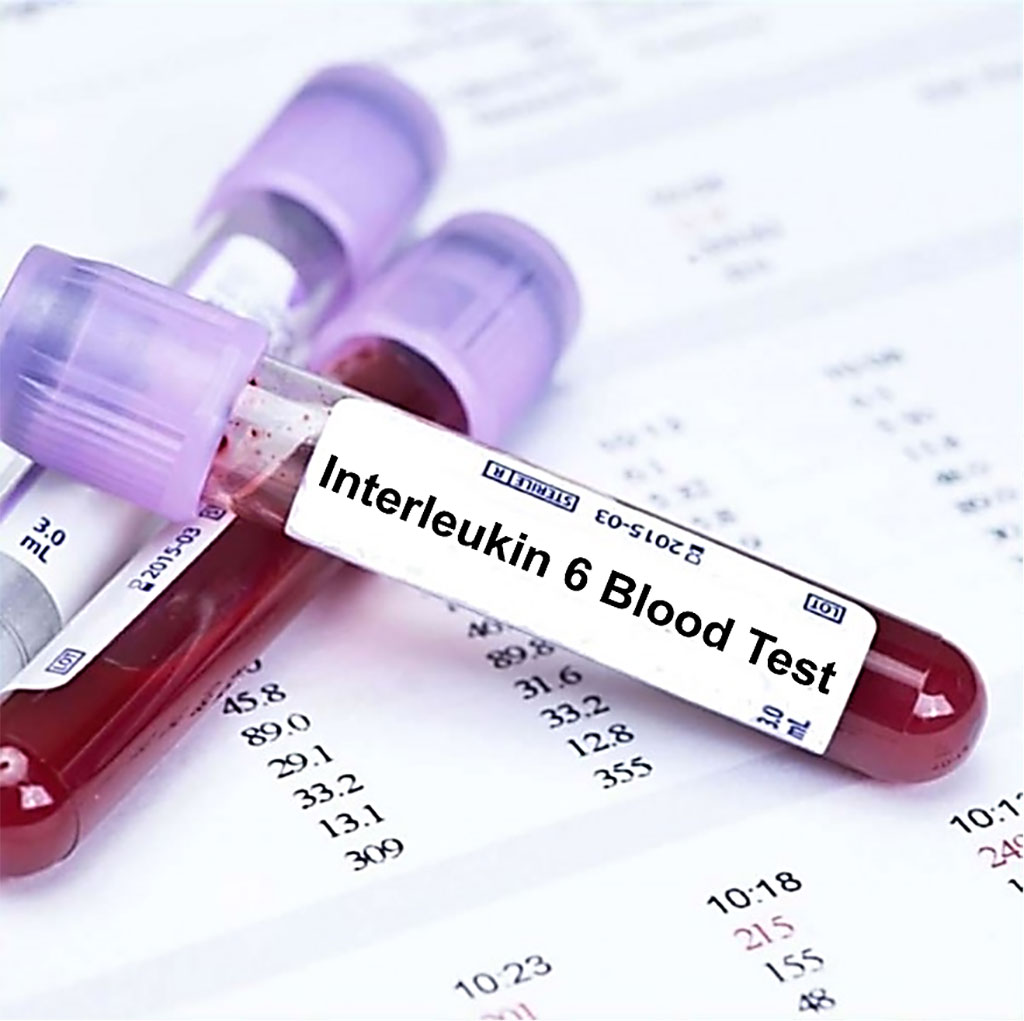Biomarkers Identified for Delirium Risk and Severity
By LabMedica International staff writers
Posted on 04 Feb 2020
An estimated seven million hospitalized Americans suffer from the acute confusion and disorientation, characteristics of delirium, including a majority of patients in medical or surgical intensive care units (ICUs).Posted on 04 Feb 2020
Individuals who experience delirium in the ICU are more likely to have more hospital-associated complications, longer stays and higher risk of readmission. They are more likely to experience cognitive impairment and also have a greater likelihood of dying for up to a year after their hospital stay than ICU patients who did not experience delirium.

Image: Biomarkers, including interleukin-6, have been isolated that can identify delirium risk and severity (Photo courtesy of Blood Tests London).
Scientists at the Regenstrief Institute (Indianapolis, IN, USA) and the Indiana University School of Medicine (Indianapolis, IN, USA) carried out an observational study at three hospitals that included 321 participants. The team analyzed the associations between biomarkers collected at delirium onset and delirium-/coma-free days assessed through Richmond Agitation-Sedation Scale/Confusion Assessment Method for the ICU, delirium severity assessed through Confusion Assessment Method for the ICU-7, and in-hospital mortality.
After adjusting for age, gender, Acute Physiology and Chronic Health Evaluation II score, Charlson comorbidity score, sepsis diagnosis and study intervention group, interleukin-6, -8, and -10, tumor necrosis factor-α, C-reactive protein, and S-100β levels in quartile 4 were negatively associated with delirium-/coma-free days by one week and 30 days post enrollment. Insulin-like growth factor-1 levels in quartile 4 were not associated with delirium-/coma-free days at both time points. Interleukin-6, -8, and -10, tumor necrosis factor-α, C-reactive protein, and S-100β levels in quartile 4 were also associated with delirium severity by one week.
At hospital discharge, interleukin-6, -8, and -10 retained the association, but tumor necrosis factor-α, C-reactive protein, and S-100β lost their associations with delirium severity. Insulin-like growth factor-1 levels in quartile 4 were not associated with delirium severity at both time points. Interleukin-8 and S-100β levels in quartile 4 were also associated with higher in-hospital mortality. Interleukin-6 and -10, tumor necrosis factor-α, and insulin-like growth factor-1 were not found to be associated with in-hospital mortality.
The authors concluded that biomarkers of systemic inflammation and those for astrocyte and glial activation were associated with longer delirium duration, higher delirium severity, and in-hospital mortality. Utility of these biomarkers early in delirium onset to identify patients at a higher risk of severe and prolonged delirium, and delirium related complications during hospitalization should be considered.
Babar Khan, MD, who led the study, said, “If you can tell which patients will have higher delirium severity and longer duration and therefore greater probability of death, there are important treatment implications. Analyzing biomarkers to stratify risk for delirium is a promising approach with the potential to be applied regularly in ICU patients in the near future.” The study was published on January 16, 2020 in the journal Critical Care Medicine.
Related Links:
Regenstrief Institute
Indiana University School of Medicine













